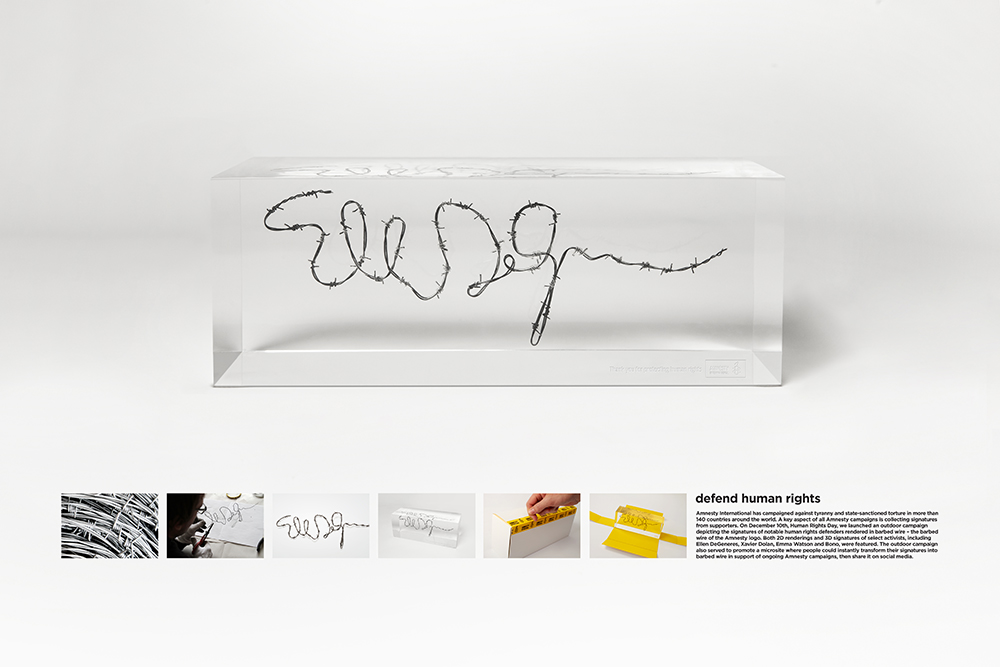Amnesty International works to stop human rights abuses, but the concept of human rights is often too abstract for the general public to grasp. A key aspect of all Amnesty campaigns is collecting signatures from supporters. Activists involved with Amnesty International know that their signature on a petition can change lives. Unfortunately, many people still don't realize the impact a simple signature can have.
Raising Quebecers' awareness of the organization meant appealing to their emotional side. With zero budget, the organization and agency Cossette had to persuade the public that signing a petition and making a donation could change people's lives.
For the fourth year in a row, Amnesty International joined forces with Human Rights Day on December 10, with the aim of rendering human rights more tangible. To achieve this, the team transformed thousands of signatures into barbed wire with a view to making human rights untouchable and protecting those most at risk.
The org and agency then asked the public to say no to injustice, to start a movement inspired by great humanitarians like Martin Luther King Jr., Nelson Mandela and Mahatma Gandhi, and local and international influencers like Bono, film director Xavier Dolan and popular Quebec singer-songwriter Ariane Moffatt.
For two months, starting December 10, Quebecers were called on to join a movement by signing their names on a microsite where they could turn their signature into barbed wire, share it on social media and invite their friends to do the same.
Activists' signatures, both 2D and 3D, were enlarged and placed in metro stations, restaurants and universities, and on superboards and bus shelters. On December 10, ads were published in major print newspapers and on La Presse+, encouraging people to join the movement.
Millions of impressions were generated with native integrations and banners on popular networks and websites, including billboards that displayed the public's signatures in real time, demonstrating how the movement was growing.
A live interview with the Director General of Amnesty International aired during primetime on December 10. Amnesty also paid tribute to international celebrities who champion human rights, such as Ellen DeGeneres and Emma Watson, by honouring them with a trophy made with real barbed wire. As recipients of the trophy, these stars became role models, sending a clear message on social media — that a simple signature can make a world of difference.
Thirty-five million impressions were generated using free media (provided by media partners who wanted to support the cause), and a 60% jump in new visitors to the amnistie.ca site was tracked. There was close to 18,000 clicks to the microsite from media placements, more than 10,000 signatures were collected and donations rose 29% compared to the same period last year.
